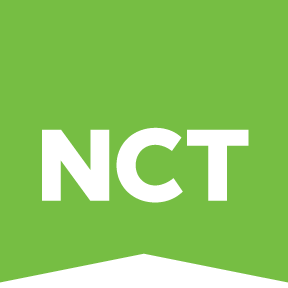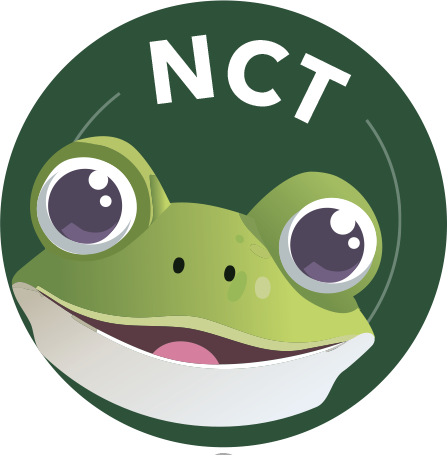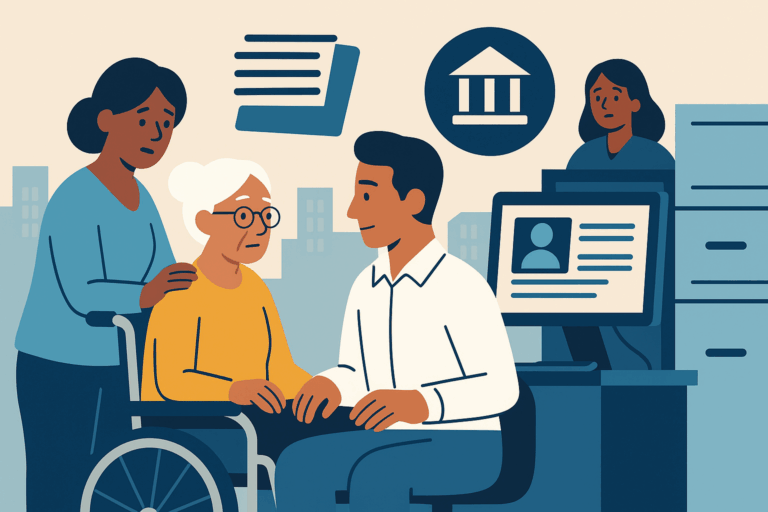Across the country, state and local agencies responsible for Adult Services are facing unprecedented challenges. From long-term care and aging programs to disability support, the demand for services continues to rise while budgets and staff resources remain tight. At the same time, many agencies are still relying on outdated, paper-heavy systems or siloed digital tools that limit efficiency and collaboration.
This is where digital transformation becomes essential. By embracing modern technology solutions, agencies can improve efficiency, enhance accuracy, and deliver higher-quality services to the individuals and families who rely on them most. For state government leaders, digital transformation is no longer optional. It is a foundation for sustainable, effective, and equitable Adult Services.
The Current Landscape of Adult Services
Adult Services programs are critical to supporting some of the most vulnerable populations in our communities. These include:
- Long-term care programs that ensure seniors can access the care they need.
- Aging services that help older adults maintain independence and quality of life.
- Disability support programs that provide essential services for individuals living with physical or intellectual disabilities.
Despite their importance, these programs are often slowed by manual processes and disconnected systems. Caseworkers may need to enter the same information into multiple systems or request documents that already exist elsewhere in the agency. Clients are frequently asked to provide the same paperwork multiple times, creating frustration and barriers to accessing services. The result is duplication of effort, errors in data, and delays in service delivery. All of which directly affect the individuals depending on timely support.
Transformation Is Essential
By adopting digital solutions, agencies can fundamentally reshape the way they deliver adult services. The benefits are wide-ranging:
- Operational Efficiency: Automating routine tasks like document routing, approvals, and notifications frees up caseworkers to focus on direct client engagement rather than paperwork.
- Data Accuracy and Accessibility: A centralized system ensures that staff always have the most up-to-date and accurate information, reducing errors and duplicative records.
- Improved Service Delivery: Faster intake, quicker decision-making, and better coordination between programs result in improved client experiences.
- Scalability for State Government: Modern systems grow with the agency, enabling them to handle increasing caseloads without costly overhauls.
- Accountability and Compliance: Digital solutions provide built-in audit trails, secure access, and automated reporting to help agencies stay compliant with state and federal requirements.
Digital transformation not only streamlines operations, but ensures that adult services programs can keep pace with growing community needs.
How Digital Content Management Powers Transformation
A cornerstone of digital transformation is enterprise content management (ECM). Unlike basic storage systems, ECM provides a complete framework for managing information across its lifecycle, from creation to secure sharing.
For Adult Services agencies, ECM offers:
- Document capture, storage, and retrieval to eliminate paper-heavy processes.
- Workflow automation for approvals, reviews, and notifications.
- Secure eSignature and client portals that make it easier for clients to submit documents and track progress.
- Role-based permissions to protect sensitive information while giving staff the access they need.
- Integration across programs so adult services staff can collaborate with healthcare, child welfare, and other units more effectively.
Consider the impact: a disability support caseworker could instantly retrieve healthcare documents already uploaded by another department, eliminating redundant requests from the client and improving the speed of service delivery. This level of efficiency simply is not possible with outdated systems.
The Benefits for Adult Services Programs
The value of digital transformation can be seen across three levels:
- For Clients: Faster applications, reduced duplication, clearer communication, and more personalized care.
- For Caseworkers: Less time spent on manual administrative tasks and greater access to the information they need to effectively serve clients.
- For Agencies: Lower costs, more accurate reporting, and the ability to use real-time data to guide policy and decision-making.
These benefits combine to create a stronger, more responsive safety net for seniors, individuals with disabilities, and families across the community.
NCT’s Role in Supporting Digital Transformation
NCT’s CaseWorks platform provides agencies with the tools they need to make digital transformation a reality. Designed specifically for human services, CaseWorks combines powerful document management capabilities with workflow automation, client engagement tools, and compliance support.
With features like automated routing, eSignature, secure portals, and robust audit trails, CaseWorks gives agencies the flexibility to modernize incrementally while still achieving significant gains in efficiency. Its scalable design ensures that agencies can expand functionality as needs evolve, making it a future-ready solution for adult services.
The Digital Future of Adult Services
Digital transformation is not just about technology. It is about rethinking how Adult Services are delivered to ensure that programs are more efficient, equitable, and responsive to the needs of clients. By moving away from outdated processes and embracing digital content management, agencies can provide better support for seniors, individuals with disabilities, and families across their communities.
For state government leaders, the path forward is clear. Investing in scalable, secure, and efficient digital solutions is the key to ensuring that adult services can meet the challenges of today and tomorrow. By making digital transformation a priority, agencies can strengthen programs, improve outcomes, and create a foundation for long-term success in aging programs and beyond.





